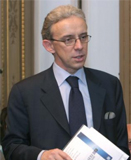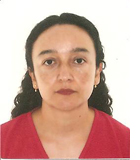- Ateneo
- Expolab
- Colloquium 2015
- Call for papers
- 2. Sustainable use of resources (water, land and environment)
2. Sustainable use of resources (water, land and environment)
- How ownership/use regimes can represent barriers to achieve the universal entitlement to natural resources in practice?
- Is there, in the present historical phase, a de facto reduction of entitlement to natural resources for poor people and communities in developing countries?
- Are there institutional arrangements and social innovations able to overcome unequal access to land, water and other natural resources as a constraint to food rights?
Technology is the key medium between natural resources and food production. Technology is, in essence, knowledge, and then a key resource created by humans. Right to food is not possible without rights on the knowledge about the transformation of resources, in particular land and water, into food. In the agricultural and food sectors of developing countries, Intellectual Property Rights (IPRs) and other types of formal rights on knowledge resources are the source of extensive conflicts, from bio-piracy to GMO, between industries, the states, and the communities.
- Is the universal spreading of Western-like systems of rights on knowledge, e.g. patents and legal registration systems, a barrier for the right and access to food?
- Are there innovative forms of IPR that can provide optimal shared solutions to knowledge access?
- What can be the meaning of international ‘technology transfer’ - or knowledge transfer - for the right to food, in particular with respect to international trade of food?
- How is it possible to share knowledge for the universal access to natural resources for food?
Continuity of production from a stable and healthy resource base is the basic criterion of sustainability as inter-generational equity. Therefore, rights on natural resources imply duties on the same resources, in particular duties on natural capital conservation and wise management, from both a quantitative and qualitative point of view.
- Is there a conflict, real or potential, between the conservation of the natural resource base and the right to food for everybody?
- What can be the role of political and institutional factors, in particular democracy and property/use regimes on natural resources, in ensuring a sustainable right to food?
- Can technological, knowledge-based solutions be separated from political and institutional factors in ensuring the continuity of the resource base for the right to food?
Global environmental change, in particular climate change, is deemed to adversely affect people in poor countries more than in other regions through, for example, a dramatic change in hydrological regimes – and then water availability for agriculture - and increasing risks from climate-related natural disasters (floods, droughts).
- Can these risks, which affect more the poorest in developing countries, be embodied in right-to-food strategies?
- Conversely, can the strategies for adaptation to climate change in poor countries embody right-to-food as a priority?
- How can right to food be included among the objectives of ongoing negotiations for a new global treaty on climate change as well as in the myriad of projects being financed and implemented within the international climate change cooperation?
Chair: ROBERTO ZOBOLI, Università Cattolica del Sacro Cuore
Rapporteur: MARÍA CLAUDIA CAMPOS PINILLA, Pontificia Universidad Javeriana, Colombia
 Roberto Zoboli
Roberto Zoboli
Roberto Zoboli is Full Professor of Economic Policy – Faculty of Political and Social Sciences – at Università Cattolica del Sacro Cuore he is also Director of Master in International Relations at ASERI, Post-graduate School of Economics and International Relations of Università Cattolica.
His Research interests include environmental policies, economics of eco-innovation, green economy, energy and waste.
 Maria Claudia Campos Pinilla
Maria Claudia Campos Pinilla
Microbiologist, Master of Science. PhD in Biology.
Professor at the Pontificia Universidad Javeriana.
Research in toxicological and microbiological quality of water and wastewater reuse for agriculture.
Expolab
- Il Laboratorio
- Partnership
- Alta Scuola di Economia e Relazioni Internazionali - ASERI
- Alta Scuola per l'Ambiente - ASA
- Centro di Ateneo per la dottrina sociale della Chiesa
- Centro di Ateneo per la Solidarietà Internazionale - CeSI
- Le Università per Expo 2015 - Comitato Scientifico del Comune di Milano
- Expo - Santa Sede
- Expo - Unione Europea
- FIUC - IFCU
- Congregazione per l'Educazione Cattolica
- Eventi
- Progetti
- Percorso BISOGNI, PERSONE, AMBIENTI
- Percorso SVILUPPO DI UN MODELLO DI ALTA FORMAZIONE PER ESPERTI DI ANALISI DEL RISCHIO ALIMENTARE
- Percorso SVILUPPO LOCALE, SOLIDARIETÀ E COOPERAZIONE INTERNAZIONALE: responsabilità e prospettive di lavoro per un futuro sostenibile
- Progetto SHAREXPO
- Progetto CAFFEXPO
- Progetto COCOA AND CHOCOLATE CLUSTER - EXPO 2015
- Progetto ESMERALDA EXPEDITION
- Progetto L'ALFABETO DELLE ACQUE CON GLI OCCHI DEI BAMBINI
- TRE INSTALLAZIONI IN UNIVERSITÀ CATTOLICA NEL TEMPO DI EXPO
- Formazione
- Corso di perfezionamento in sicurezza degli alimenti
- CEEP- Cremona Executive Education Program
- Summer School Expo Milan 2015
- Ciessevi - Università del volontariato
- Rapporto fra cambiamenti climatici, agricoltura e sicurezza alimentare nei paesi in via di sviluppo
- UPA - Comunicazione d'azienda nella Network Society
- Alta Scuola per l’Ambiente
- fou_main 4930
- Colloquium 2015
- Call for papers
- 1. Global food security: new solutions for a cultivated planet
- 2. Sustainable use of resources (water, land and environment)
- 3. Land rights and access to food: promoting human dignity for hunger reduction
- 4. Access to food, access to information
- Scientific committee
- How to participate
- Press review
- About us
- Contacts
- PHOTOS
- Rassegna stampa
- Notizie
